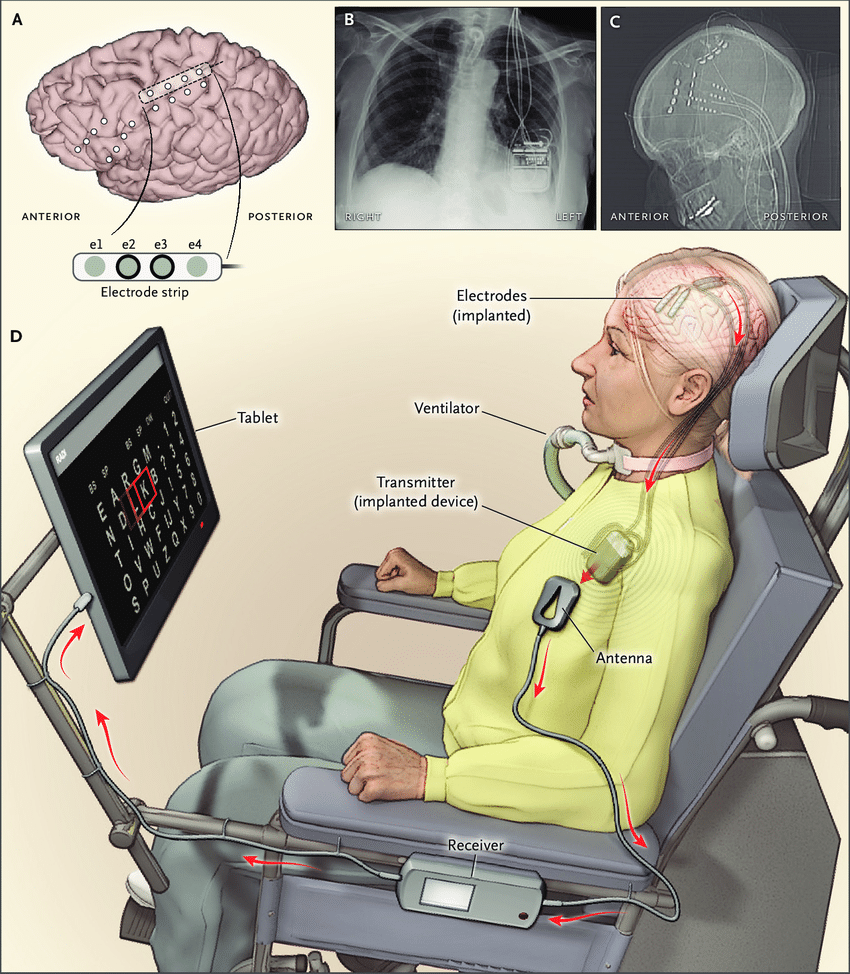
Researchers Develop New Brain-Computer Interface with Flexible Backing
Researchers have developed a new brain-computer interface (BCI) with a flexible backing that could revolutionize prosthetic control and VR. The new BCI is on par with and outperforms the existing gold standard for BCIs, the Utah Array, and it has the potential to be more comfortable and effective for users.
The new BCI's flexible backing allows it to more evenly conform to the brain's complex curved surface, which results in better and more uniform recording of brain-activity signals. The researchers have demonstrated stable broadband recordings from the BCI for up to 196 days in rodents, and they have shown that it can record signals from a significantly larger area of the brain than current technologies.
The new BCI is also thinner and lighter than traditional BCIs, which may reduce irritation of the brain tissue. The flexible backing is also transparent, which allows for fundamental neuroscience research that would not be possible with other BCIs.
The researchers used a double-sided lithography approach to manufacture the new BCI. This approach allows them to build microscopic circuits and devices on both sides of a rigid silicon wafer. On one side, they added a flexible, transparent film with a bilayer of titanium and gold traces. On the other side, they etched away all the silicon except for free-standing, thin, pointed columns of silicon, which are the microneedles.

The bases of the microneedles align with the titanium-gold traces, which are patterned via standard and scalable microfabrication techniques. This manufacturing process offers the possibility of flexible array design and scalability to tens of thousands of microneedles.
The researchers believe that the new BCI could be used in closed-loop systems to help people with severely limited mobility. For example, the BCI could be used to control prosthetic limbs or other devices.This is a very promising development in the field of brain-computer interfaces. The new BCI is more comfortable, effective, and versatile than current technologies, and it has the potential to revolutionize the way we interact with computers and other devices.
The article was written by Amit Caesar.
Here are some exciting new articles you don't want to miss!
- New wearable skin lets you touch VR stuff and really feel it.
- Apple Vision Pro: The Future of Spatial Computing
- Learn a New Language in Virtual Reality Without Leaving Your Home
- Meta Quest 3: Everything you need to know
- Amazing products for your VR from Amazon
- The Best Accessories for Microsoft Flight Simulator
- Smart Contact Lenses: The Next Frontier in Augmented Reality
- Experience the future of sex with virtual reality and artificial intelligence
More News:
- UNLEASHING NATURE'S POWER: HARNESSING THE BODY'S NATURAL IONS FOR WIRELESS DATA TRANSMISSION
- META QUEST 2 ACCESSORIES
- EVERYTHING YOU NEED TO KNOW ABOUT QUEST 3 VR, RAY-BAN SMART GLASSES AND META AI
- 14 VR Games That Are Still Worth Playing
Here are the links to my social media pages:
Facebook: [link]
YouTube: [link]
LinkedIn: [link]
Twitter (x): [link]






